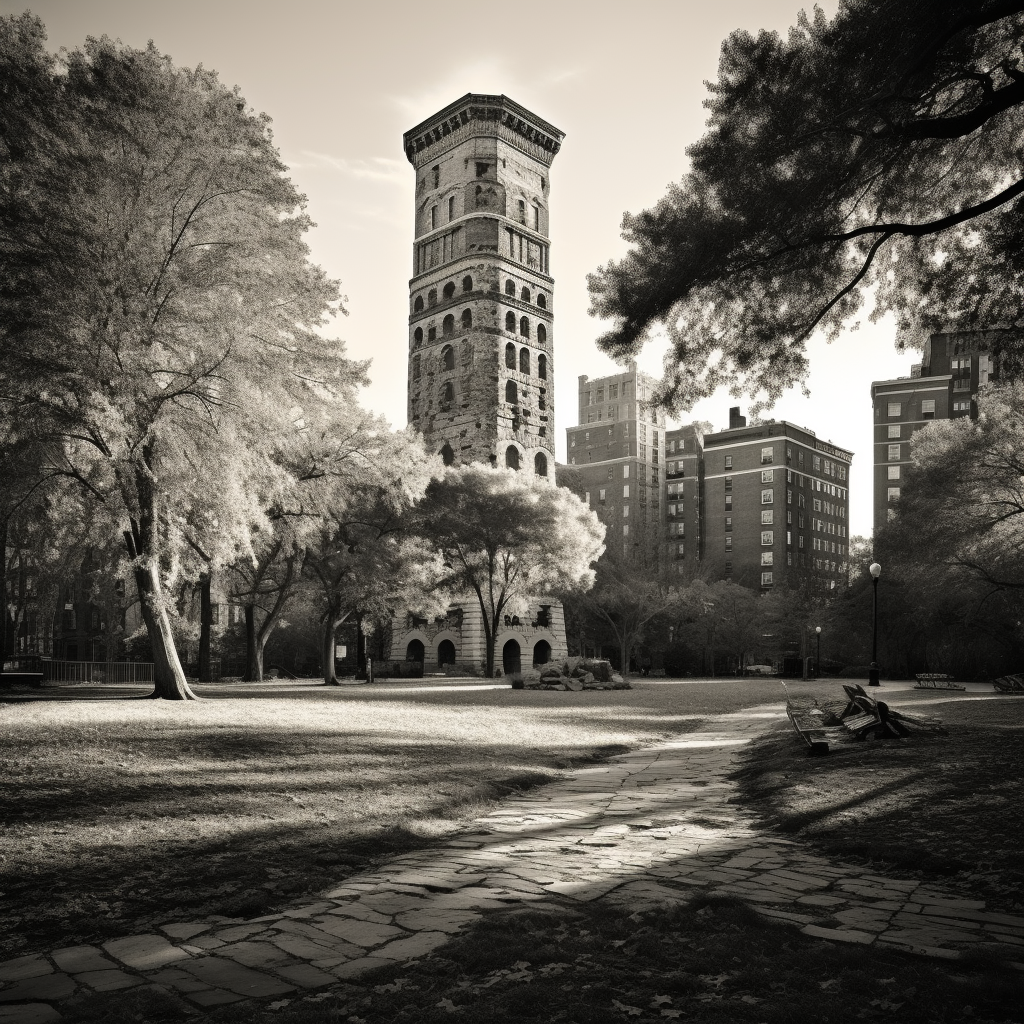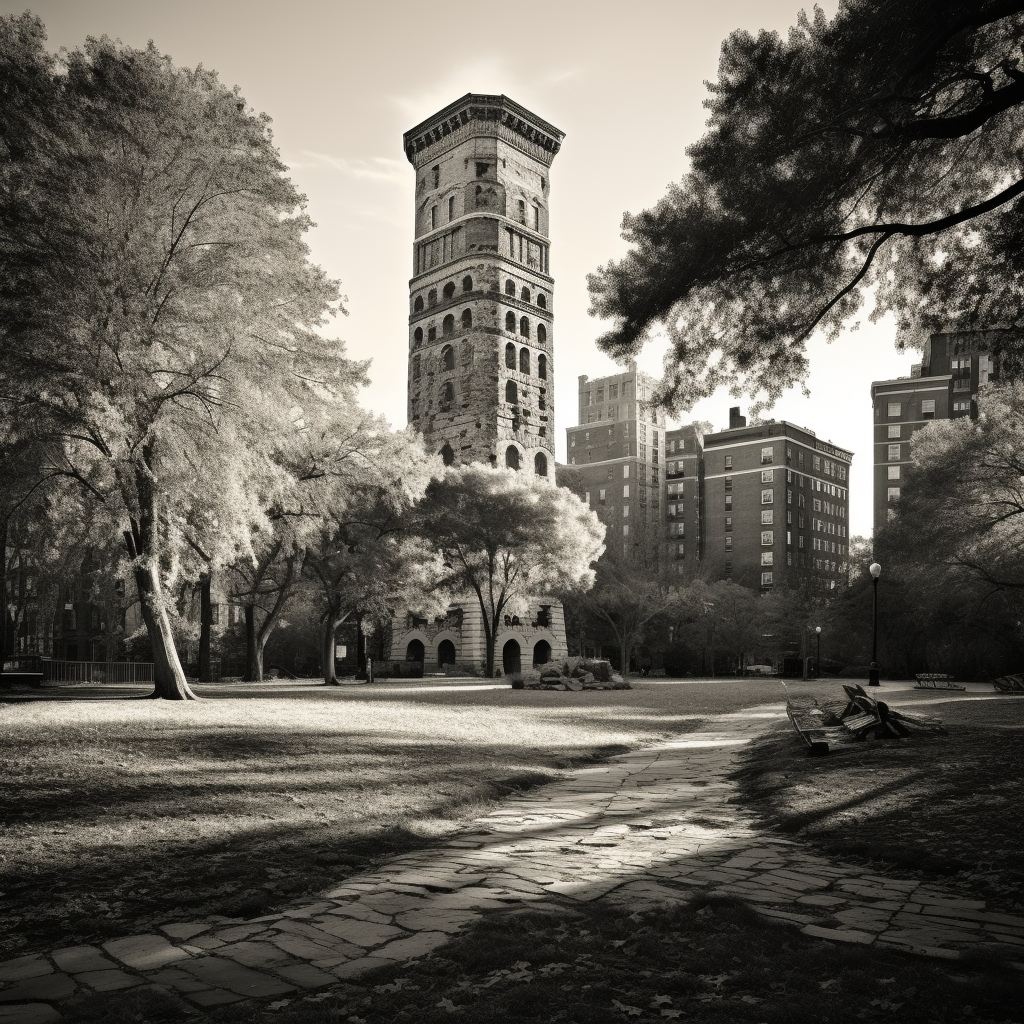The Tower of the Infanta, originally the Tower of the Princess Imperial, was built during the reign of Eleanor the Fifteenth as a separate quarters for the large retinue of staff dedicated to the welfare and upbringing of the Princess Imperial (later the Infanta) of the Empire of Australia. After the conquest of Portugal, the Tower was renamed, emphasizing the so-called integration of the Portuguese Empire into the Empire of Australia.

Built originally in a Neo-Egyptian style, meant to resemble the famed Tower of Thebes, the tower was refashioned somewhat under the gaze of Eleanor the Twenty-Ninth, who added a new sleeping and living quarters on the top of the tower in a similar style of architecture but with modern flair. The tower was also given modern touches like electric lights and a completely revamped system for water and effluent.
Dark History of the Tower of the Infanta
Since the construction of the Tower, numerous Infantas have found themselves imprisoned in the Tower due to disagreements with the ruling Empress of the day.
Eleanor the Seventeenth locked her eldest daughter up in the Tower for more than four years because of the younger’s vocal disagreement with the elder’s anti-religious edicts (see Décret 1660). Eleanor the Eighteenth only left after the death of her mother.
Eleanor the Twenty-First is known to have locked Eleanor the Twenty-Second in the tower for 12 days after losing a game of Questions.
Eleanor the Thirty-Second locked her daughter up in the Tower for more than 2 years, after what was described as a lifelong contentious relationship where she remained until the elder’s death as well.
Eleanor the Thirty-Third has spoken at length of her time in the Tower as a time of reflection, study, and music.
I was given two daily meals, always brought to me by Akahata, who was my only connection to the outside world. At first he would give me updates, but when my mother realised he was lingering longer than necessary to update me, those updates were forbidden. I practiced piano for hours every day. It was the only real solace afforded me. There was thankfully an extensive library in the Tower that wasn’t removed, with dozens of books of music and I played with an absolutely religious fervour. Music became my primary language of communication. Otherwise, I used the time to continue my studies of history—I figured that without any connection to current events I could at least learn about the events of the past as a guide for the future.
Eleanor XXXIII in an interview with Empire Media in 2017.

